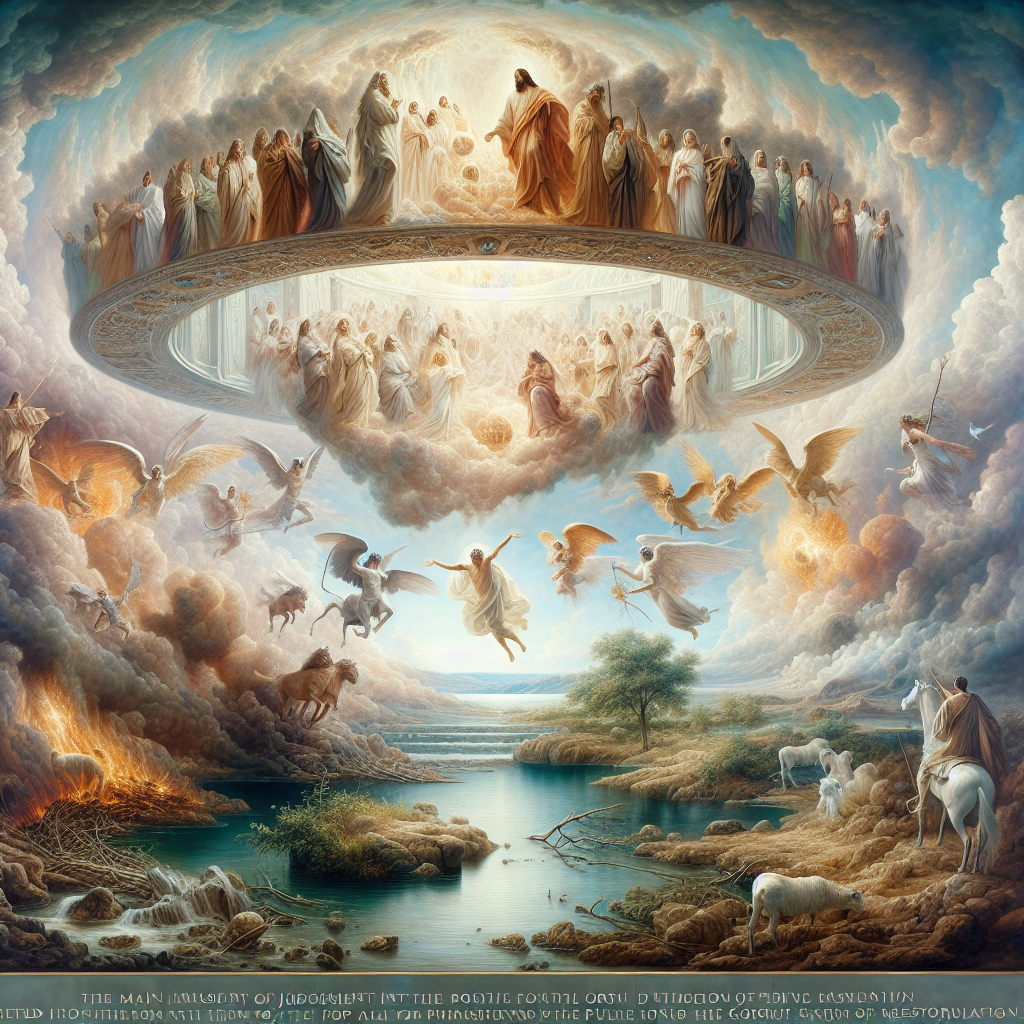Isaiah 4 - 6 - Judgment and Restoration in the Face of Desperation

Isaiah 4-6: Analysis and Insights
Key Verses (NIV)
- Isaiah 4:1: "In that day seven women will take hold of one man and say, 'We will eat our own food and provide our own clothes; only let us be called by your name. Take away our disgrace!'"
- Isaiah 4:2: "In that day the Branch of the Lord will be beautiful and glorious, and the fruit of the land will be the pride and glory of the survivors in Israel."
- Isaiah 4:6: "It will be a shelter and shade from the heat of the day, and a refuge and hiding place from the storm and rain."
Themes
- Judgment and Restoration: Isaiah 4 contrasts the judgment upon the daughters of Zion with the hope and restoration brought by the "Branch of the Lord," symbolizing the cleansing and protection under God's reign.
- The Branch of the Lord: This Messianic symbol represents the future redemption and glory through the Messiah, emphasizing a time of spiritual renewal and divine presence.
- Spiritual Cleansing and Protection: The chapter underscores the necessity for spiritual cleansing and the promise of divine refuge, portraying God as a shelter from life's adversities.
Historical Context
- Time Period: Isaiah's prophecies were delivered around 740-680 BCE, during King Uzziah's reign in Judah.
- Political Climate: Judah was prosperous but morally declining, with the Assyrian threat looming.
- Significant Events: The prophecy addresses the impending judgment due to the people's sins, foreshadowing the Assyrian invasion.
Cultural Context
- Social Structures: The text reflects ancient Judah's societal norms, where women relied on men for social status and security.
- Cultural Norms: The desperation of women seeking marriage highlights the cultural emphasis on family and lineage as a means of social stability.
Etymology
- "Branch" (Hebrew: צֶמַח - tsemach): This term is a Messianic title, symbolizing hope and redemption through the Messiah.
- "Fruit of the Earth" (Hebrew: פְרִי הָאָרֶץ - peri ha'aretz): Often linked to the Messiah, it signifies the blessings and abundance under His reign.
Put it into Practice
- Faith in Difficult Times: Embrace the promise of redemption and protection, trusting in God's sovereignty amidst challenges.
- Seeking Spiritual Cleansing: Acknowledge the need for personal spiritual renewal and seek God's forgiveness and guidance.
- Finding Refuge in the Lord: Recognize God as a refuge, providing peace and security in life's storms.
Questions for Reflection
- How does the concept of the "Branch of the Lord" shape your understanding of redemption and salvation?
- What does seeking spiritual cleansing and protection from the Lord mean to you personally?
- How can you apply the promise of God's shelter and refuge to your current life challenges?
Reflecting on these questions can lead to personal growth, spiritual development, and a deeper understanding of the text, encouraging a closer relationship with God and a more meaningful faith journey.